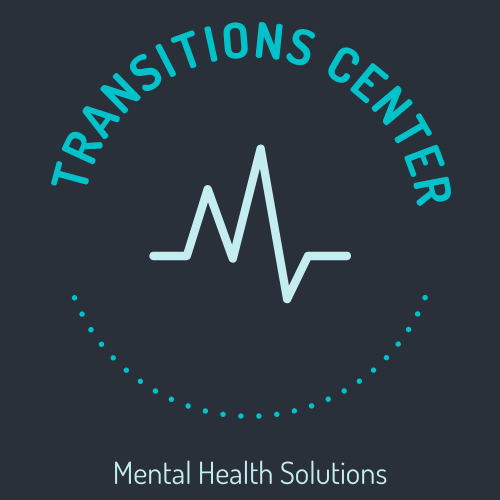Mental health is a huge issue in today’s society. According to the National Alliance on Mental Illness, one in five adults in the United States experiences mental illness in a given year. That’s more than 43 million people! In this blog post, we will discuss the top 10 mental health solutions that can help you or someone you know who is struggling with a mental illness.
Mental health is a complex issue that can be caused by many different factors. Some potential causes of mental illness include genetics, chemical imbalances in the brain, traumatic experiences, toxic relationships, poor lifestyle choices (like not getting enough sleep or exercise), and social stigma. Whatever the cause may be, it’s important to seek help if you or someone you know is struggling with a mental illness.
Fortunately, there are many different solutions that can help people manage their mental health and cope with their symptoms. Some of the top 10 solutions include therapy, medication, self-care habits (like getting enough sleep and exercise), support groups, alternative therapies like meditation or yoga, lifestyle changes (like changing your diet), and building a strong social support network.
If you or someone you know is struggling with mental illness, the first step is to talk to a healthcare professional like a therapist or psychiatrist. They can help you determine the best treatment plan for your situation and refer you to other professionals if needed. From there, it’s important to practice self-care and develop healthy habits that can help you maintain your mental health.
So, what are the top 10 mental health solutions? Let’s take a closer look at each one!
1. Therapy
Therapy is an evidence-based treatment for many mental illnesses like depression and anxiety. A therapist will work with you to identify the root causes of your symptoms and help you come up with ways to manage them. Therapy might involve talk therapy, cognitive behavioral therapy (CBT), or other evidence-based therapies like acceptance and commitment therapy (ACT).
2. Medication
In some cases, medication may be prescribed by a healthcare professional in addition to therapy. Medication can be used to treat certain symptoms of mental illnesses or help manage the effects of medication.
3. Self-care habit
Good self-care habits like getting enough sleep, exercising regularly, eating a healthy diet, and avoiding drugs and alcohol are important for maintaining your overall health and well-being – including your mental health. These habits can go a long way in helping you manage your mental illness symptoms.
4. Support Groups
Support groups are a great place to connect with other people who are struggling with the same issues that you’re dealing with. They can help provide moral support and practical advice, as well as a sense of community and belonging.
5. Alternative Therapies
Alternative therapies like meditation, mindfulness-based cognitive therapy (MBCT), and yoga can help reduce stress and anxiety and improve your overall mood. These types of practices have been shown to be helpful in managing symptoms of mental illness.
6. Lifestyle Changes
Making some simple lifestyle changes like getting enough sleep, exercising regularly, and avoiding alcohol and drugs can all help improve your mental health.
7. Building A Strong Social Support Network
Having a strong social support network is important for overall well-being, including mental health. Spending time with family and friends, engaging in activities you enjoy, and connecting with local community resources are all great ways to create or strengthen your social support network.
8. Self-Love And Self-Compassion
One of the most important things you can do for your mental health is to practice self-love and self-compassion. This means accepting yourself as you are without judgment, treating yourself with kindness rather than harsh criticism, and acknowledging that each of us faces struggles in our lives.
9. Mindfulness
Mindfulness is the practice of being present in each moment and observing your thoughts and feelings without judgment. Mindfulness can help you learn to accept yourself as you are, realize that nothing is permanent, and find peace in the present moment.
10. Seeking Professional Help
If all else fails, don’t be afraid to seek professional help – there are many healthcare professionals who specialize in mental health issues and know how to best manage them. So don’t hesitate to reach out if you need it!
In summary, the top 10 mental health solutions include therapy, medication, self-care habits, support groups, alternative therapies, lifestyle changes, building a strong social support network, self-love and self-compassion, mindfulness, and seeking professional help. By incorporating these solutions into your life, you can improve your mental health and manage the symptoms of any mental illness that you may be struggling with.
About the Authors
Transitions Center for Natural Mental Health Treatments for a variety of physical and mental dependency issues and conditions. Substance use disorders are difficult to understand for many people. The physical and mental aspects of any substance disorder are complicated and unique to the individual suffering. The differences between physical and psychological dependency vary but have some similarities. Transitions Center for Natural Mental Health Treatments help the public know what to look for as a means of helping a loved one cope with the challenges of mental health disorders.
This post was created with the assistance of cbd online companies. At Mary Jane’s CBD Dispensary, they are passionate about providing their customers with the best quality products and services. Not only do they offer a variety of top-notch CBD Hemp products for you to choose from, but also Naturopathic treatments for physical disabilities or mental illnesses. They want everyone who comes through their online doors to leave feeling refreshed and healthy so they can live their lives on their own terms. Get in touch if you have any questions!

